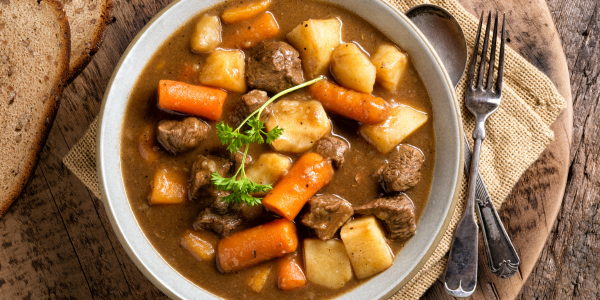- We're Hiring! View Opportunities
- 512-250-5055
Wellness Wednesday: How to Make—and Keep—Your New Year’s Resolution

Wellness Wednesday: Managing Financial Stress During the Holidays
December 6, 2023
3 Ways to Boost Your Heart Health
February 7, 2024As a new year begins, you may be reflecting on the past year. This introspection is a significant first step toward selecting a New Year’s resolution to help you grow as a person. Many New Year’s resolutions fail by mid-February due to a lack of self-discipline, with only 1 in 5 people sticking with them all year. That’s why setting yourself up for success when choosing a resolution is important.
The U.S. News and World Report estimates that 80% of people
ditch their New Year’s resolutions by February.
Regardless of what you choose as your resolution, make sure it’s a “SMART” goal—one that is specific, measurable, attainable, realistic, and timely—to increase the odds that you will stick to it. Here’s what that means:
- Specific—A specific goal is simple and strategic. It’s something you can easily conceptualize. For example, instead of saying you’ll eat healthier, be specific about how you can actually do that (e.g., cook breakfast daily or eat fish twice a week).
- Measurable—A measurable goal is quantified. You’ll be able to see if you’re making progress as you go. For example, if you want to save $500 for your emergency fund or save for a down payment on a home, you’ll be able to track your savings and prove you’re making progress along the way.
- Achievable—An achievable goal is realistic and attainable. If you’ve never worked out before, a daily workout goal won’t likely be feasible or sustainable in the long run. Alternatively, if you’re already taking walks, start with increasing their duration or frequency.
- Relevant—A relevant goal needs to make sense or be appropriate for you. You want your goal to matter, so reflect on the past year about what’s working in your life and what’s not. Timing is equally important, so ensure this is the right time for you to tackle the resolution.
- Timely—A timely goal is accomplished within a specific time frame. You can adjust this period as needed and make new goals or deadlines after achieving the first one.
Remember that New Year’s resolutions don’t have to be health-related, so find what matters to you to help you live a better life in 2024.
Health Benefits of Dry January
As the holidays end, some people give up alcohol for “Dry January.” The month-long wellness challenge can serve as a reset after overindulging during the holidays or an opportunity to reassess one’s relationship with alcohol. While a month of sobriety can seem overwhelming to some, it comes with some advantages. A brief break from moderate to heavy alcohol consumption may offer the following health-related benefits:
- Better sleep
- Increased focus
- Improved mood
- Boosted energy
- Clearer complexion
- Potential weight loss
Alcohol can also contribute to various health conditions, such as high blood pressure, kidney or liver problems, heart disease, and certain cancers. As such, a period of sobriety can positively affect one’s well-being and overall health. If you have any questions or concerns about your alcohol consumption, talk to a healthcare professional.

Alcohol Alternatives
• Mocktails
• Zero-proof cocktails
• Sparkling water
• Functional sodas
Protecting Your Skin During Winter
Taking care of your skin the right way can be difficult. The task can seem almost impossible to achieve when the temperature and humidity levels drop. Dry skin may not seem like the most concerning health problem, but not treating dry skin can result in itchiness, cracked or painful skin, eczema, and dermatitis.
This winter, you should limit how much hot water your skin is exposed to, as hot water rapidly dries out your skin. It can help to take shorter baths and showers and use a limited amount of soap. Additionally, it’s important to moisturize properly after bathing to keep your skin hydrated and healthy. Lastly, a humidifier can help keep moisture in the air. Contact your doctor if you have any skin concerns.

Slow Cooker Beef Stew
Makes: 6 servings
Ingredients
- 2 lbs. stew meat (cut into 1-inch cubes)
- ¼ cup all-purpose flour
- Salt and pepper (optional, to taste)
- 2 cups water
- 2 tsp. beef bouillon
- 1 garlic clove (finely chopped)
- 3 carrots (sliced)
- 3 potatoes (diced)
- 1 onion (chopped)
- 1 celery stalk (sliced)
- Add optional herbs as desired: bay leaf, basil and oregano
Preparations
- Place meat in the slow cooker.
- Mix the flour, salt, and black pepper in a medium bowl and pour over the meat. Stir to coat.
- Add the remaining ingredients and stir to mix.
- Cover and cook on low for 8-10 hours or for 4-6 hours on high.
- Stir the stew thoroughly before serving. If using a bay leaf, discard it before serving
Nutritional Information (per serving)
- Total calories: 275
- Total fat: 5 g
- Protein: 30 g
- Sodium: 218 mg
- Carbohydrate: 28 g
- Dietary fiber: 4 g
- Saturated fat: 2 g
- Total sugars: 3 g
Source: MyPlate




